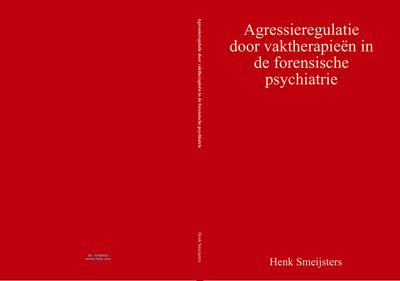Background: Around 13% of the world’s population suffers from obesity. More than 40% of people with obesity display emotional eating behaviour (eating in response to negative emotions or distress). It is an alternate to moreeffective coping strategies for negative emotions. Our study explored the opportunities for helping adults with emotional overeating using a virtual coach, aiming to identify preferences for tailored coaching strategies applicable in a personal virtual coach environment. Three different coaching strategies were tested: a validating, a focus-on-change, and a dialectical one – the latter being a synthesis of the first two strategies. Methods: A qualitative study used vignettes reflecting the two most relevant situations for people with emotional eating: 1. experiencing negative emotions, with ensuing food cravings; and 2. after losing control to emotional eating, with ensuing feelings of low self-esteem. Applied design: 2 situations × 3 coaching strategies. Participants: 71 adult women (Mage 44.4/years, range 19–70, SD = 12.86) with high scores on the DEBQ-emotional eating scale (Memo 3.65, range 1.69–4.92, SD = .69) with mean BMI 30.1 (range 18–46, SD = 6.53). They were recruited via dieticians’ practices, were randomly assigned to the conditions and asked how they would face and react to thepresented coaching strategies. Data were transcribed and a thematic analysis was conducted. Results: Qualitative results showed that participants valued both the validating coaching strategy and the focus-onchange strategy, but indicated that a combination of validation and focus-on-change provides both mental supportand practical advice. Data showed that participants differed in their level of awareness of the role that emotions play in their overeating and the need for emotion-regulation skills. Conclusion: The design of the virtual coach should be based on dialectical coaching strategies as preferred by participants with emotional eating behaviour. It should be tailored to the different stages of awareness of their emotions and individual emotion-regulation skills.
DOCUMENT

Posterpresentatie op conferentie Introductie: De afgelopen twee decennia is er geen communis opinio over de vraag of er sprake is van regionale factoren bij de constituentvolgorde in de Nederlandse Gebarentaal (NGT) (Coerts, 1994; Crasborn & De Wit, 2005; Vermeerbergen, Nijen Twilhaar & Van Herreweghe, 2013). Dit onderzoek levert een bijdrage aan de discussie over constituent-volgorde in het algemeen, doordat werd onderzocht of constituentvolgorde in NGT verschillend is voor eerste- en tweedetaalverwervers van de NGT. Methode: Er namen tien participanten (studenten NGT aan de Hogeschool Utrecht) deel: vijf dove moedertaalgebruikers en vijf horende studenten (leeftijd 19-30 jaar). Productie werd uitgelokt van drie verschillende typen enkelvoudige zinnen aan de hand van plaatjes (Volterra et al., 1984): 6 zinnen met omkeerbare constituenten, 6 zinnen met niet-omkeerbare constituenten en 6 locatieve zinnen. Alle 180 geproduceerde zinnen werden getranscribeerd en syntactisch (Subject, Object, Verbum) geanalyseerd. Resultaten: De moedertaalgebruikers gaven duidelijk de voorkeur aan de volgorde SVO of SVOV bij omkeerbare zinnen en SOV voor niet-omkeerbare zinnen. Voor de locatieve zinnen werd veel variatie gevonden, met een lichte voorkeur voor OSV. De T2-verwervers vertoonden veel variatie in de productie van omkeerbare zinnen zonder duidelijk patroon. Voor de niet-omkeerbare zinnen werd een lichte voorkeur voor SOV gevonden en wederom variatie. De loca-tieve zinnen werden voornamelijk uitgedrukt in de volgorde OSV. Conclusie: Deze studie toont aan dat de constituentvolgorde van moedertaalgebruikers en T2-verwervers verschillen. Opvallend is dat de T2-verwervers de neiging hebben de regel voor locatieve zinnen ‘Het grootste element voorop in de zin’ te overgeneraliseren naar het type niet-omkeerbare zin.
MULTIFILE

In de periode 2008-2010 hebben onderzoekers en studenten de vaktherapie onderzocht die wordt gebruikt in de behandeling van jonge delinquenten in zes justitiële jeugdinrichtingen en instellingen voor gesloten jeugdzorg. Ze ontwikkelden interventies voor beeldende therapie, dansbewegingstherapie, dramatherapie, muziektherapie en psychomotorische therapie.
DOCUMENT

Het pakket bestaat uit twee delen en meerdere praktische bijlage die u in de praktijk meteen kan toepassen: Deel A: Theoretische onderbouwing en aanbevelingen: hierin wordt u een theoretische onderbouwing van de richtlijn gegeven, dat resulteert in aanbevelingen voor hulpverleners. Deze gegevens zijn van belang om goed met de richtlijn te kunnen werken. Deel B: Gegevensverzameling en interventies: in dit deel worden de aanbevelingen specifiek uitgewerkt voor de verpleegkundige beroepsgroep. Het effectief gebruik van de richtlijn, de wijze van gegevensverzameling en het kiezen van interventies komen aan bod.
MULTIFILE

Het document beschrijft allereerst reeds uitgevoerd onderzoek naar het gebruik van vaktherapieën bij agressieregulatie in de forensische psychiatrie.
DOCUMENT

De Handleiding Korte Interventie Methode KIM biedt achtergrond en uitwerking voor de interventie. De definitieve publicatie van de handleiding wordt verwacht in de zomer van 2013.
DOCUMENT

Het Interventieprotocol Zorg in Samenwerking (ZiS) bestaat uit 3 delen: het Achtergronddocument, het Handboek en het Werkboek. In deel I, het Achtergronddocument, worden de theoretische achtergronden van het programma beschreven. Deel II, het Handboek, levert praktische handleidingen en instructies voor de uitvoering van het programma. ZiS bestaat uit een aantal onderdelen, deze corresponderen met het los bijgeleverde Werkboek (deel III), dat speciaal is geschreven voor de patiënt.
MULTIFILE

Het pakket bestaat uit twee delen: Deel A: Het achtergronddocument: hierin worden u allerlei theoretische en procedurele gegevens aangereikt die van belang zijn om goed met het interventiepakket te kunnen werken. Deel B: Het werkboek: dit werkboek biedt u praktische ondersteuning om in samenwerking met de patiënt effectief met het zelfverwondende gedrag om te gaan. Het werkboek kan als WORD-document digitaal worden opgeslagen. Denkt u hierbij vanzelfsprekend aan de privacybescherming van de patiënt. Bij het werkboek behoren een aantal bijlagen.
MULTIFILE
